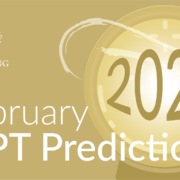How to Improve Your MBE Score: A Step-by-Step Guide
Wondering how to improve your MBE score? Do you keep scoring below average on MBE practice exams?
First of all, that’s okay. We have had many students come to us freaking out and wondering how to improve their MBE score because they score 15-20 points below average on Barbri or Kaplan’s practice exams (that is, answering about 100 questions correctly out of 200). And they still pass the bar exam on their first try. So, it is okay if you’re below average. It does not mean you will fail. Especially since you have over a month to improve your strategy and increase your knowledge of the law.
Second, before you start to insanely try to complete 100 multiple choice questions a day, it is best to figure out why you are answering questions incorrectly. There are many potential explanations as to why you are not scoring as highly as you would like to on your practice exams. Here are some possibilities:
Wondering how to improve your MBE score? Do you keep scoring below average on MBE practice exams?
- You simply do not know the law well enough and have not spent enough time actively reviewing your outlines.
- You know the broad concepts of the law well enough, but not the details.
- You are not reading the question or fact pattern carefully enough.
- You have not practiced enough to know the patterns of questions that are tested on the MBE.
- You always narrow your answer down to two choices and end up picking the wrong one.
Maybe it is one of the above things or maybe it is a combination of them that prevent you from answering questions correctly. There is one method that can not only help you narrow down why you are answering questions incorrectly; it can also help you to improve your multiple-choice score. This method requires that you answer multiple-choice questions slowly and methodically.
How to Improve Your MBE Score
The Method to use for Each Multiple Choice Question you Answer:
1. First ask yourself: What subject is being tested?
2. Next, ask yourself: What is the specific legal issue being tested?
3. Third, state the legal rule that governs the issue. If you cannot remember the legal rule, use your outline to figure out what the precise legal rule is.
Note: If you have trouble with Step #2 and Step #3 (that is, you have no idea where the legal rule is in your outline or you cannot even begin to figure out what the legal issue is in Step 2), this is a sign that you might need to spend more time actively reviewing your outline before continuing to answer questions.
4. Figure out the answer (before looking at the answer choices if it is possible). Look for an answer choice that aligns most closely with your analysis. Then read through the other three answer choices to ensure that the one you picked is correct.
Let’s try this process with a sample multiple-choice question provided by the National Conference of Bar Examiners.
Sample question:
A brother and a sister purchased land under a deed that conveyed title to them as joint tenants with right of survivorship. Common law joint tenancy is unmodified by statute in the jurisdiction.
The purchase price was $50,000, of which the sister paid $10,000 and the brother paid $40,000. The sister later mortgaged her interest in the land. The brother then died testate, leaving his entire estate to a cousin. The sister later paid off her mortgage debt, and the mortgage was released.
At the present time, who owns the land?
(A) The answer depends on whether the jurisdiction follows the lien theory or the title theory of mortgages.
(B) Title is entirely in the sister as the surviving joint tenant.
(C) Title is in the sister and the cousin as equal tenants in common.
(D) Title is in the sister and the cousin as tenants in common, with the sister having a 20% interest and the cousin having an 80% interest.
When you see a question like this, approach it using the method above.
1. First ask yourself: What subject is being tested?
Real Property.
2. Next, ask yourself: What is the specific legal issue being tested?
The specific legal issue concerns joint tenancy. Who owns the property? Did the sister mortgaging her interest sever the joint tenancy? Did the fact that the brother left a will giving all of his property to a friend sever it?
3. What is the legal rule that is at issue?
As mentioned above, if you forgot the legal rule about severing joint tenancies, USE YOUR OUTLINE!! Some students are very hesitant to do so, but it is helpful to make a habit of using your outline when you answer multiple choice questions because this is how you learn your outline and it is how you organize concepts in your mind.
For the sake of didactics, I will go into some extra background about the legal rule about when a joint tenancy is severed:
The fact pattern clearly states that the brother and sister have a joint tenancy. The general rule is that if the brother and sister have a joint tenancy, when the brother dies, the sister will automatically take the entire interest in the property (regardless of whether the brother grants the property to someone else in his will). This is called the right of survivorship.
However, if the joint tenancy is severed during the lives of the joint tenants, then the brother and sister become tenants in common. Tenants in common do not have a right of survivorship. Thus, if the brother and sister are living as tenants in common when the brother dies, the brother’s heirs or beneficiaries named in his will (in this case, the brother’s cousin) will inherit his interest in the property. In that case, the cousin and the sister would each own a 50% interest in the property after the brother dies.
The only way to convert a joint tenancy to a tenancy in common is by “severing” it while the parties are living. This can occur either by: (1) a conveyance; (2) granting a mortgage in a title theory state; (3) signing a contract of sale; or, (4) a sale by a creditor (foreclosure on interest).
In this case, the sister granted a mortgage. If this is a title theory state, the mortgage would have severed the siblings’ joint tenancy and it would have become a tenancy in common at that point in time. If it was a tenancy in common, when the brother died, the cousin would inherit his 50% interest in the property.
However, if the brother and sister do not live in a title theory state and instead live in a lien theory state (majority law), then the mortgage would not have severed the joint tenancy. The brother and sister would be living as joint tenants regardless of the mortgage. Consequently, the sister would have a “right of survivorship” and would automatically take the entire interest at the death of her brother.
4. Answer the question before looking at the answer choices (if possible) and look for an answer choice that aligns most closely with your analysis.
Our answer comes down to this: If this is a title theory state, the cousin would inherit his 50% interest in the property. However, if the brother and sister do not live in a title theory state, then the sister would have a “right of survivorship” and would take the entire interest at the death of her brother.
Let’s look at the answer choices again to find one that aligns with this one:
(A) The answer depends on whether the jurisdiction follows the lien theory or the title theory of mortgages. This is correct. This is exactly what is stated above and gets to the heart of the issue. We still need to go through the other answer choices to double-check ourselves.
(B) Title is entirely in the sister as the surviving joint tenant. This is not true if the brother and sister were living in a title theory state so answer choice (A) is better because it gets to the heart of the analysis. Some students pick this because they say “lien theory is the majority rule” It’s true, lien theory is the majority rule. However, if you have an answer choice that specifically recognizes that there are two approaches (i.e. Answer choice (A)) that is the better answer since the outcome depends on which theory the jurisdiction recognizes.
(C) Title is in the sister and the cousin as equal tenants in common. Again, this is not true if the brother and sister were living in a lien theory state so (A) is still a better answer choice.
(D) Title is in the sister and the cousin as tenants in common, with the sister having a 20% interest and the cousin having an 80% interest. This is not true if the brother and sister were living in a lien theory state. Also, they would not own unequal shares. A joint tenancy requires unities of Time, Title, Interest, and Possession. Thus, if/when the joint tenancy was severed at the time of the mortgage, each co-tenant would own a 50% interest, regardless of how much each one paid for the property initially. Consequently, when the brother died, the cousin would have the brother’s share (50% interest).
Let’s look at the benefits of using this systematic approach to answering the question:
- First, If you ever see a question on severing joint tenancies again, you will probably get it right! In other words, you are learning the law better and refining your knowledge of the details. Further, as you answer more questions, you will see these patterns of questions being repeated over and over again.
- Second, by analyzing the question like this, you will learn to get to the heart of the issue. You will not pick the second-best answer choice because you will find an answer choice that corresponds exactly with your analysis.
- Third, you will understand the importance of reading the question carefully and how some facts make a difference (the fact that the sister granted a mortgage) – and other facts are there to throw you off (the fact that the brother and sister each paid a different amount of the purchase price) Basically, you will not fall for their traps!
Let’s try it again with a second question:
The owner of a parcel of land received the following letter from a buyer. “I will pay you $2,200 an acre for [the parcel].” The owner’s letter of reply stated, “I accept your offer.” Unknown to the owner, the buyer had intended to offer only $2,000 per acre but had mistakenly typed “$2,200.” As both parties knew, comparable land in the vicinity had been selling at prices between $2,000 and $2,400 per acre.
Which of the following states the probable legal consequence of the correspondence between the parties?
(A) There is no contract because the parties attached materially different meanings to the price term.
(B) There is no enforceable contract, because the buyer is entitled to rescission due to a mutual mistake as to a basic assumption.
(C) There is a contract formed at a price of $2,000 per acre, as the buyer intended.
(D) There is a contract formed at a price of $2,200 per acre, regardless of the buyer’s true intention.
Let’s go through the steps:
1. First, what subject is being tested?
Contracts.
2. Next, ask yourself: What is the specific legal issue being tested?
The legal issue is: What is the legal effect, if any, of the buyer mistakenly mistyping his offered price? To put it in more legal jargon: What is the effect of the buyer’s unilateral mistake?
3. What is the legal rule that is at issue? Remember to use your outline if you need to!
The rule is: A unilateral mistake will not prevent contract formation. However, if the other party (the nonmistaken party) knew or had reason to know of the mistake made by the other party, then the contract is voidable by the mistaken party.
To put it in layman’s terms, even if a party screws up when typing out his offer, if his offer is accepted then a contract has been formed. He can only get out of the contract if the other party knew he made a mistake or had reason to know that he made a mistake. Otherwise, he is stuck with the contract regardless of what he truly intended. This is only fair to the offeree who is reasonably relying on the offer.
So let’s see what happens in this case when we apply the law to the facts:
1. Did the owner know of the buyer’s mistake? No. There is nothing in the facts that tell us that the land owner had any actual knowledge of it. In fact, the facts specifically tell us the exact opposite. They say, “Unknown to the owner, the buyer had intended to offer only $2,000 per acre but had mistakenly typed “$2,200.” So there is no argument that he had actual knowledge of the mistake.
2. Should the owner have known of the buyer’s mistake. No. Read the facts carefully. The facts specifically tell us, “As both parties knew, comparable land in the vicinity had been selling at prices between $2,000 and $2,400 per acre.” The facts are saying there is nothing that should have alerted the owner to the buyer’s mistake because the buyer offered a standard price for the land that would not have surprised the owner in any way.
If the buyer mistakenly typed, say, “$20,000” instead of “$2,000” then this would be a unilateral mistake that would allow him to get out of it because the seller should know right away that something is wrong…But that is not what happened in this case so it looks like he is stuck and the contract price will be set for $2,200. While contracts require a meeting of the minds, in unilateral mistake cases, we do not look at the subjective intent of the offeror. We look at it from the perspective of a reasonable offeree.
4. Look for an answer choice that aligns most closely with your analysis. Let’s look at the answer choices again.
(A) There is no contract because the parties attached materially different meanings to the price term. This is not the law. As mentioned above, you look at the situation from the perspective of a reasonable offeree. Subjective intent does not control when determining whether an offer was made.
(B) There is no enforceable contract, because the buyer is entitled to rescission due to a mutual mistake as to a basic assumption. This is not a mutual mistake! It’s not like both parties were mistaken about a material fact. Only one party made a mistake in typing his offer. Further, the buyer is not entitled to rescission.
(C) There is a contract formed at a price of $2,000 per acre, as the buyer intended. Again, this is not the law as we do not look at the buyer’s subjective intent. We look at the offer from the perspective of a reasonable person in the position of the offeree. Imagine how day-to-day transactions would be affected if an offeror who typed “$2,200” he could get away with forcing the offeree to accept only $2,000 for the land. Common sense should assist you in eliminating choice (C) as the correct answer, even if you were unclear on the law.
(D) There is a contract formed at a price of $2,200 per acre, regardless of the buyer’s true intention. This is exactly what was stated in our analysis above. Thus, (D) is the correct choice.
Why use this slow, torturous, methodical method to try to improve your MBE score? Because if you ever see another question on severance of a joint tenancy or unilateral mistake, my guess is you will answer the question correctly! You will do so in less time. You will immediately recognize the issue and remember the law. And you will not pick the second-best choice. You will pick the first best choice.
Going through these questions slowly and methodically might sound awful, but if you do it anyway, you will get the process in your “muscle (cerebral?) memory” so to speak.
If you are trying to learn how to paint, your first paintings might not look too good. It might take you a while to learn how to paint straight lines, add in shadows, depth, whatever. You have to start painting each brush stroke slowly and really focusing. However, after a while of continuously practicing, you get faster. Pretty soon, you can paint beautiful pictures without giving much thought to the process itself.
It is the same thing with answering multiple-choice questions. It is not enough to just try to answer a bunch of questions every day. That’s like trying to paint a bunch of paintings sloppily without any real instruction, hoping that time will make you better. It’s true that it might help you to improve your MBE score – but probably not as much, and if you are doing it that way, you are certainly “taking the long road.”
So instead of just doing a million questions a day, start out slowly. Improve your technique. Improve your knowledge of the law. Then speed it up. This is how you improve your MBE score. You will find yourself floundering less. You will find that you do not need to spell out this process for each and every question you answer as time goes on, because it will become intuitive. It will become your natural process to approach questions.
If you have any questions or comments as you continue MBE’ing, please feel free to post them in the comments below or e-mail us at info@jdadvising.com.
Looking for additional MBE help?
If you are looking for MBE help, read our 10 expert MBE tips here. Check out our step-by-step guide to improving your MBE score, please review this post for an overview of tips. This is a great free MBE resource. If you would like to receive our MBE tip of the day emailed to you, please fill out the form below.
Show Contact Form.
MBE Tip of the Day
Seeking MBE Assistance?
Seeking MBE Assistance?
- 📘 MBE Guide: Equip yourself with our FREE expert-crafted bar exam and MBE guides.
- Free Bar Exam Resource Center: Discover top resources, articles, and free webinars led by renowned bar exam professionals.
Top Resources as Vouched by our Students:
- MBE One-Sheets: One of our most highly acclaimed bar exam supplements!
- Bar Exam Outlines: Our comprehensive and condensed bar exam outlines present key information in an organized, easy-to-digest layout.
- MBE Private Tutoring: Opt for personalized, effective strategies.
- On Demand Bar Exam Course: Comprehensive bar exam preparation.
- Bar Exam Crash Course and Mini Outlines: Acclaimed and effective for a quick refresher.
- MBE Mastery Class, Real MBE Questions, and MBE Guide: Elevate your MBE preparation with these high-quality MBE supplements!
🔥 NEW! Check out our Repeat Taker Bar Exam Course and get introduced to our unmatched platinum Guarantee Pass Program.






Comments are closed.